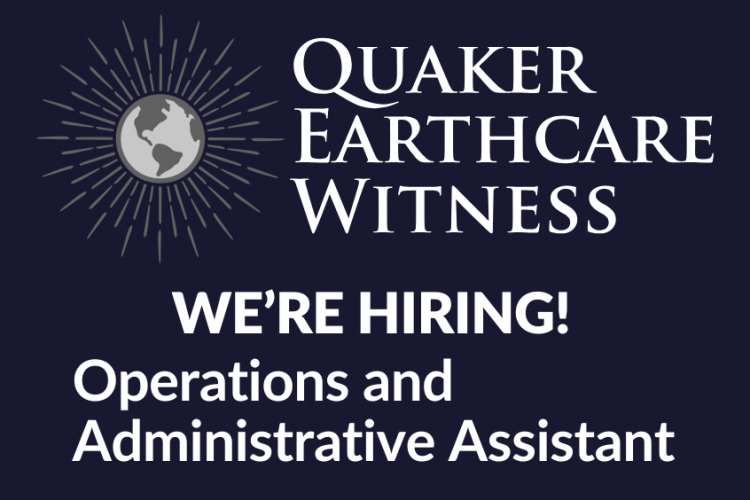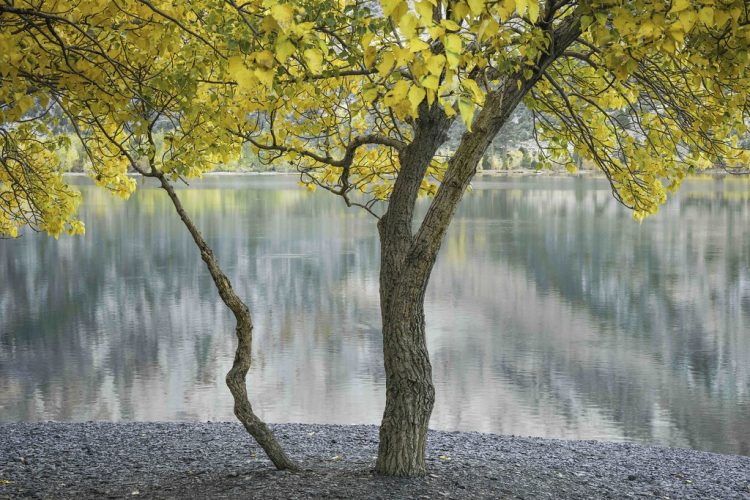Learning about Climate Change…in Vietnam

In this and continuing issues of BeFriending Creation, we are sharing profiles of our most recent Mini-Grant recipients. We hope the stories inspire you to consider your own Mini-Grant application for a project your meeting would love to do!
This Mini-Grant profile shares the work of David Schaad, who will also be speaking on local responses to climate change at the QEW Annual Meeting in Chicago, October 24-27.
Q: Please tell us about your project.
A: On December 26th, 2012, I flew to Ho Chi Minh City, Vietnam to study climate change in the Mekong River Delta. Together with my Environmental Studies faculty advisor (and professor) Dr. Dan Spencer and 15 other students from a variety of disciplines, I traveled around the Mekong Delta in southern Vietnam while learning about the ways in which climate change was already impacting the region–how it was and is changing the ecology and physical environment; how climate change is impacting livelihoods and society at large; and what actions are being taken by individuals, communities, universities, and the government to respond and adapt to climate change.
This was my first trip to Asia, as well as my first experience in a communist country. Needless to say, each and every moment of the trip was rich with newfound learning and perspective as we visited farms, national parks, cultural sites, research stations, and attended classes on a wide variety of facets of this complex nation and its unique bunch of challenges resulting from climate change.
Q: What inspired you to do this project?
A: In 2010, shortly after the inauguration of the Climate Change Studies Minor here at the University of Montana, this program unveiled what would become a yearly travel seminar in the Mekong Delta of southern Vietnam. Initially, I was intrigued by the idea, but lacked the funding and decided to look into the travel seminar more seriously in the future when I had more time and money to spare. In the fall of 2012, nearing my college graduation date, I realized that the 2012-13 trip was my final opportunity to make this journey.
In particular, I wanted to investigate what climate change felt like and looked like in another part of the world completely distinct from Montana. I had long dreamed of seeing Asia one day, and I decided as a climate change studies minor that there couldn´t be a better inaugural trip than this one – and what a fantastic capstone to my undergraduate career. I wanted to engage in a reverse mission – to learn from the Vietnamese and bring that knowledge, wisdom, and awareness home to Montana and to the United States. Particularly because our federal government has continued to blatantly stall proactive policies responding to climate change – and has even committed to a policy of inaction until China and other major polluters take the lead – I wanted to see what we as American citizens could learn from the on-the-ground projects of the Vietnamese people. I also hoped to build solidarity with the Vietnamese people – and to assure them that not all Americans are climate change deniers, as our media might make us out to be. In short, I was looking for a very personal and intimate learning opportunity that would allow me to engage with local people, learn from their creativity firsthand, and then bring home that knowledge to my country, to both educate and inspire change on the local, regional, and national levels.
Q: What do you hope the outcome will be?
A: Ultimately, I hope that my learning experience in Vietnam can be leveraged to promote more proactive energy and resource use policies here in the United States. I understand that I am but one single person among millions, but I believe that the awareness and knowledge I gained in Vietnam–both of the imminent nature of climate change impacts in coastal nations and regions around the world, as well as an appreciation for some of the many creative solutions and adaptive policies that are possible–will help inform me to be a more effective voice for change in the future. After my four-week travel seminar in Vietnam, I feel more determined than ever to work for progress, particularly in the realm of governmental policy. I also hope to be a servant to the Vietnamese people, because Vietnam stands among the many nations on the front lines and in the imminent wake of climate change – even as our nation, far from threatened by climate change to date, continues to be the world´s single greatest per-capita emitter of CO2 and therefore the single-largest contributor to anthropogenic climate change. I hope to speak for the Vietnamese people in this regard – to give a voice to the voiceless, to empower the powerless, and speak up on behalf of people worldwide who need the United States to set a strong example and lead the world in moving towards a carbon-neutral existence.
Q: How did the QEW Mini-Grant help you achieve your goals for this project?
A: Financially, I would not have been able to make this journey without the financial assistance of the Quaker Earthcare Witness Mini-Grant and several other small scholarships and grants I was lucky enough to receive. Despite my lack of financial resources, I felt that I needed to make this journey before I graduated–and understood that never again would I be afforded an opportunity quite like this one–to learn directly from scholars, researchers, farmers, governmental policymakers, park staff, scientists, and community leaders about the many significant ways in which climate change is impacting a nation so far afield from our own. I am so grateful for this gift, which transcends far beyond the dollar amount QEW contributed. Your generous grant has opened my eyes and expanded my worldview immeasurably.
Q: Can you tell us a bit about you, your connection to Friends, and your work and/or the area in which you hope to make a difference in the world?
A: I was born and raised in Portland, Oregon, where I began attending West Hills Friends Church as a fifth grader. My Quaker community provided a central and all-important, nourishing role in my life. My parents raised me from an early age to be compassionate, peaceful, and to care for and appreciate the natural world around me; West Hills added a profound spiritual dimension to these familial teachings, and augmented my commitment to them through the Quaker testimonies of peace, social justice, and environmental stewardship. I was lucky enough to attend summer camps at Twin Rocks Friends Camp several summers during my middle and high school, as well as two Samuel School spiritual retreats. My weekly youth group and meeting for worship grounded me deeply in the active faith of the Quakers, and further heightened my passion for working for justice of all kinds throughout my life.
At the University of Montana, I am wrapping up two bachelor´s degrees in environmental studies and Spanish. As a college graduate, I hope to make a positive difference in our world by working for strong partnerships between nations for environmental progress and social justice. Through my travels in Vietnam and in other moments in college, I have come to understand that environmental and social justice are inextricably linked; I am relieved that I can dedicate myself to both of these passions without having to sacrifice one for the other. Ultimately, I want to work for a more just, fair, sustainable, and equitable world, a world in which people are increasingly tied to each other and to the land, and understand that any action which hurts the Earth indeed hurts themselves, as the indigenous people of the world have been telling us since before time began. I want to help preserve and promote local environmental knowledge and work on behalf of those who have been marginalized by globalization, particularly indigenous peoples and cultures. Their driving ethic of balance within, rather than domination over, the natural world, is something that all of us must once again adopt. It is time for all of us to understand the fallacy of endless consumption (both because it is fundamentally unsustainable and because although it promises us happiness, it leads us only to misery) and to return to a place of harmony with our Mother Earth, and the indigenous peoples of the world will show us how if only we are willing to listen.

